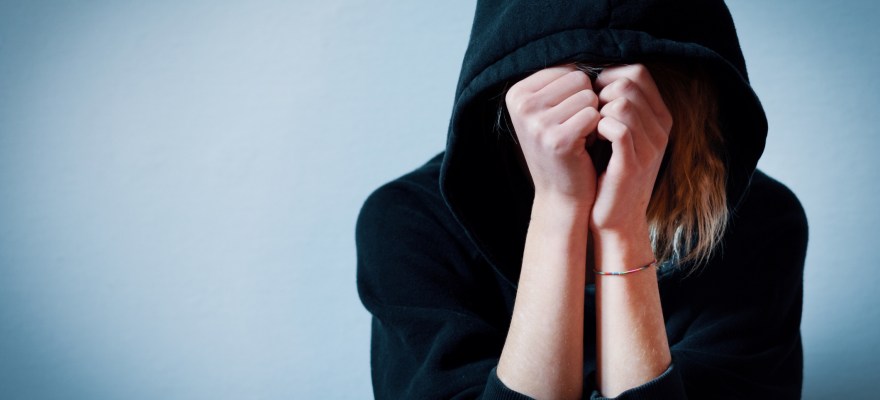
Parents want their children to be safe, healthy and happy. As kids grow up, many parents will worry about new dangers and obstacles their teens and preteens may face. Case in point: Youth substance abuse.
Illegal drug use (and misusing prescription drugs) can lead to many problems for kids. Children who use drugs can start to have problems in school. It can lead to the start of or aggravate existing mental health conditions. Friendships can suffer. And of course, this can all put stress on the family as a whole.
Youth Substance Abuse on Staten Island
As many studies and experts have suggested, substance abuse became an even bigger problem during the COVID-19 pandemic. But even before the pandemic, youth substance abuse was a problem, and still is today.
On Staten Island, substance abuse and misuse among teens is prevalent. According to 2019 Youth Risk Behavior Survey data, 12.1% of Staten Island high-school students reported misusing prescription pain relievers within the last year. 8.4% reported misusing prescription stimulants, and 7.7% reported misusing prescription tranquilizers.
Misuse of prescription painkillers can be a step toward accessing and using even more dangerous drugs like heroin, cocaine, and methamphetamines, experts say.
As marijuana continues to work its way to full legalization, the dangers of this drug shouldn’t be overlooked, either. Problems in school, difficulty thinking and learning, and reduced coordination are just some of the negative effects of teen marijuana use, according to the Centers for Disease Control and Prevention.
Recognizing Youth Substance Abuse
There are things parents can look out for if they suspect their child is doing illegal drugs or misusing prescription drugs.
“Look for irregular behaviors that are unusual for your child,” Sean Ghazala, behavioral health manager at Staten Island Partnership for Community Wellness and TYSA project director, said. “This could be declining school work and grades if they usually excel. Perhaps they are disengaged or change in participation in their favorite activities. Other signals could be sleeping during class and school-related activities, changes in appearance and/or hygiene, and abrupt changes in friendships. On their own, many of these behaviors are ‘typical’ teen behavior, and may have nothing to do with drug use, but the suddenness of changes can be an alert to a possible problem.”
Prescription Drug Misuse
There are times when members of the family—including teens—are prescribed much-needed prescription painkillers by their doctor. This begs the question: How can parents make sure their kids are taking the drugs only for their intended purpose?
Ghazala says parents should set clear expectations around medicine access in their homes. This should span all substances from over-the-counter medications to prescription drugs.
“Parents should safely store all drugs in a secured location, and monitor when their children and teens take these drugs to ensure that correct dosages are taken at the correct times. If you cannot be there to oversee administration of drugs, designate another responsible adult to do so,” Ghazala said.
In addition, it’s important to know the potential side effects from misuse of these drugs. Monitor for these potential side effects in case they do appear. Be prepared to contact your child’s physician or even 911 if you see potentially dangerous or unexpected side effects.
Preventing Prescription Drug Misuse
Some light in this darkness is that parents have the ability to prevent and reduce substance abuse.
“Preventing and intervening in substance use has been central to TYSAs approach to promoting the behavioral health of youth on Staten Island,” Ghazala said. “The coalition is composed of community members from across many sectors because we recognize we can all work together to prevent opioid and other drug misuse while supporting our youth.”
Ghazala shared a pledge of actions parents can take to help prevent their kids from starting a prescription drug habit:
- I will ASK my child’s doctor about the risks associated with opioids and other prescription drugs, and if non-opioid pain management alternatives could be right for my child.
- I will make time to CONNECT with my child regularly, even when it seems like things are too busy.
- I will TALK to my child about the dangers of prescription medications.
- I will stay INFORMED about what medications my child is prescribed and what they are using.
- I will ORGANIZE with other caregivers in my community, and get involved in TYSA’s work to become a champion for substance use prevention and treatment on Staten Island.
- I will be prepared with NARCAN in case of an opioid overdose, which can reverse the potentially fatal effects of the overdose.
- I will SECURE the medications in my home to ensure that they aren’t being misused.
Wanna read more stuff like this? Get our newsletters packed with ideas, events, and information for parents in Staten Island.
"*" indicates required fields

